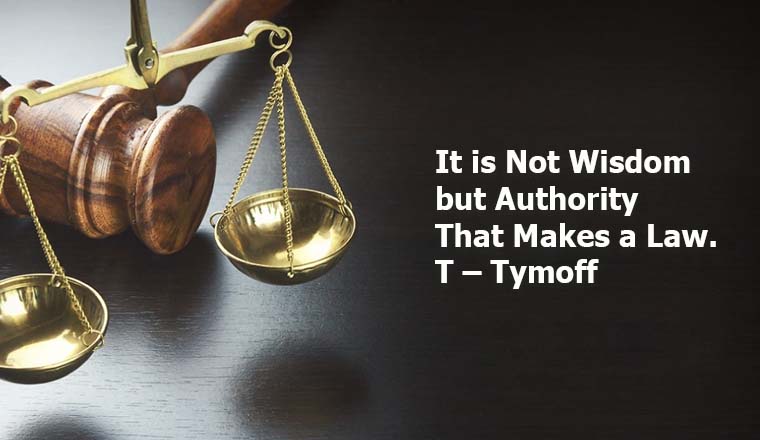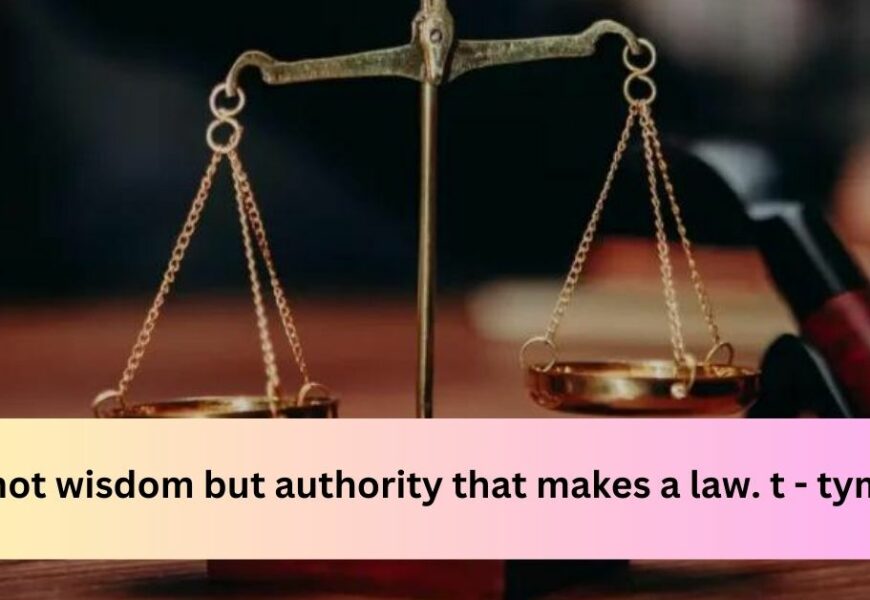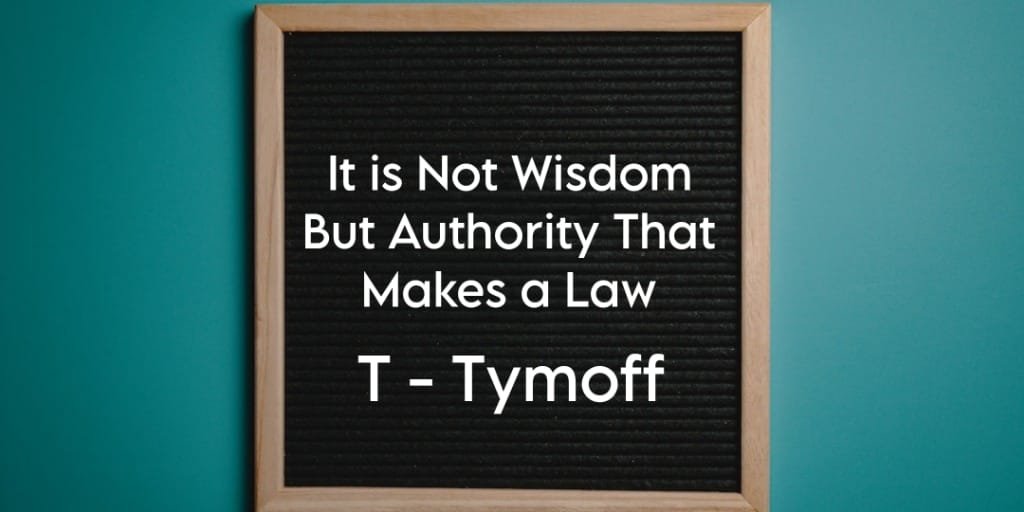Introduction:
it is not wisdom but authority that makes a law. t – tymoff, In the intricate tapestry of legal philosophy, the relationship between wisdom and authority in the creation and enforcement of laws has been a perennial subject of debate. The aphorism, “It is not wisdom but authority that makes a law,” attributed to the enigmatic figure Tymoff, encapsulates a provocative viewpoint that challenges conventional notions of legal governance. In this article, we delve into the depths of Tymoff’s perspective, examining the implications of prioritizing authority over wisdom in the context of lawmaking and its impact on societal order and justice.

The Dichotomy of Wisdom and Authority: Tymoff’s perspective
To comprehend Tymoff’s assertion, it is crucial to dissect the dichotomy between wisdom and authority. Wisdom implies a deep understanding of the nuances of human behavior, societal dynamics, and ethical considerations. It is often associated with the ability to make informed, judicious decisions that align with the principles of justice and fairness. On the other hand, authority denotes the power vested in individuals or institutions to command obedience and enforce rules. Tymoff’s proposition challenges the conventional belief that laws should be crafted based on the collective wisdom of society’s best minds.
Must Read=Love What You Have Before Life Teaches You To Love – Tymoff
Authority as the Arbiter of Order: Tymoff’s perspective
Tymoff’s perspective seems to underscore the pragmatic aspect of authority in maintaining social order. In a world marked by diverse perspectives and conflicting interests, the need for a central, authoritative body to establish and enforce laws becomes evident. The argument here is that wisdom, while valuable, may lack the decisiveness and immediacy required for effective governance. Authority, as wielded by governments and legal systems, serves as the arbiter of order, providing a swift and decisive response to breaches of societal norms.
The Pitfalls of Relying Solely on Wisdom: it is not wisdom but authority that makes a law. t – tymoff
Tymoff’s stance prompts us to question the efficacy of relying solely on the wisdom of a select few in the formulation of laws. Wisdom, although invaluable, can be subjective and prone to biases. A system that prioritizes wisdom alone may risk becoming elitist, favoring the perspectives of a privileged minority over the diverse voices of the populace. Tymoff seems to suggest that entrusting the power of lawmaking solely to the wise may lead to a lack of practicality and an inability to adapt to the dynamic nature of societal challenges.

Historical Perspectives on Authority and Wisdom:
To contextualize Tymoff’s assertion, it is essential to examine historical examples where authority and wisdom intersected in the realm of law. Ancient civilizations often relied on authoritative figures, such as monarchs or religious leaders, to codify and enforce laws. The Code of Hammurabi, for instance, reflects a system where authority was concentrated in the hands of a ruler believed to possess divine wisdom. However, such systems were not without flaws, as the concentration of power often led to arbitrary rule and the imposition of unjust laws.
The Evolving Role of Authority in Modern Legal Systems:
In contemporary societies, the relationship between wisdom and authority has evolved. Democratic ideals advocate for the inclusion of diverse voices and perspectives in the legislative process, aiming to balance the concentration of authority with the collective wisdom of the people. Tymoff’s perspective may find resonance in critiques of bureaucratic inefficiencies and legislative gridlock, where the pursuit of consensus can impede swift and decisive action.

Potential Abuses of Authority:
While authority plays a pivotal role in maintaining order, Tymoff’s assertion prompts us to scrutinize the potential abuses of unchecked authority. History is replete with instances where authoritative figures have exploited their power to enact oppressive laws and suppress dissent. The juxtaposition of wisdom and authority becomes critical in preventing the erosion of individual rights and ensuring that laws align with ethical principles.
Balancing Wisdom and Authority: A Synthesis:
Rather than endorsing a stark dichotomy between wisdom and authority, Tymoff’s perspective may be interpreted as a call for a synthesis of the two. In this paradigm, the crafting and enforcement of laws would involve a harmonious collaboration between the collective wisdom of society and the authoritative structures tasked with governance. Such an approach would seek to leverage the strengths of both wisdom and authority, mitigating the potential pitfalls associated with each.

Conclusion:
Tymoff’s aphorism challenges us to reevaluate our assumptions about the foundations of legal governance. While wisdom undoubtedly plays a crucial role in shaping just and equitable laws, Tymoff posits that authority, when wielded judiciously, can provide the necessary structure for societal order. As we navigate the complexities of legal philosophy, it becomes imperative to strike a balance between the discerning wisdom of the collective and the authoritative structures that safeguard the foundations of justice. In doing so, we may discover a nuanced approach to lawmaking that transcends the confines of binary thinking and fosters a more inclusive and adaptive legal system.
